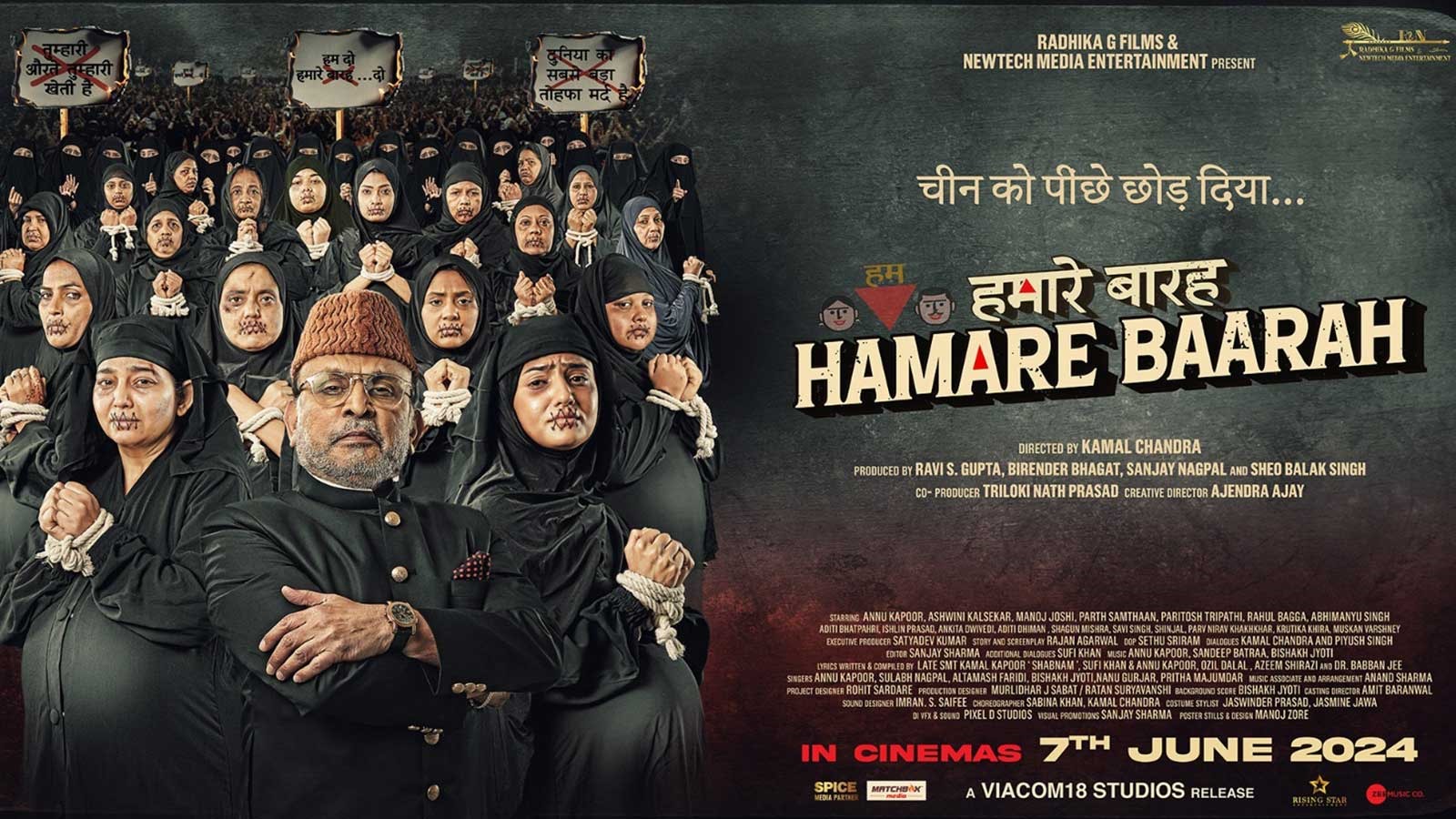Nothing Objectionable Against Muslims, Says Bombay High Court After Watching 'Hamare Baarah'

The high court also said that there were a few scenes which were objectionable, and if the parties consented to delete the same, the bench would pass an order allowing the release of the movie
The Bombay High Court on Tuesday said that the bench had watched the movie 'Hamare Baarah' and found nothing objectionable against the Muslim community.
The division bench of the high court, comprising Justice BP Colabawalla and Justice Firdosh Pooniwalla, was hearing multiple petitions seeking a ban on the movie on the grounds that it incorrectly portrays the lives of married Muslim women as lacking independent rights due to a misinterpretation of "Aayat 223," a verse in the Quran.
It argued that the trailer includes dialogues and visuals derogatory to the Islamic faith and married Muslim women in India.
Earlier, the high court had allowed the release of the movie after the makers informed the bench that the objectionable scenes would be deleted as directed by the Central Board of Film Certification (CBFC).
However, the petitioners then moved the Supreme Court, and the release was halted until the high court decided the matter..
During the hearing, the bench said that the movie is about the upliftment of women and shows that people should not blindly follow Maulana but apply their minds.
"The movie is in fact for the upliftment of women. The movie has a Maulana misinterpreting the Quran and in fact one Muslim man objects to the same in the scene. So this shows that people should apply their mind and not blindly follow such Maulanas," the court said.
The high court also said that there were a few scenes which were objectionable, and if the parties consented to delete the same, the bench would pass an order allowing the release of the movie.
While referring to a scene where the man kills his daughter in the name of God, the bench said,
"That may be objectionable. Doing something like this in the name of god may send the wrong signal. Removing this one line will not cause any hindrance to the creative freedom of the make," the court said.
The high court observed that there was nothing objectionable in the movie and that the Indian public is not so gullible or silly.
Additionally, the bench said that in some scenes it is the man who is incorrectly interpreting the Quran differently and it is not the Maulana who is doing it.
"It's a different when someone who is Maulana propagating something like this and an individual doing it. Tomorrow if you depict a pope or christian then it's a different thing. If the same speech was given by antagonist then it makes no difference. When Maulana does it, he interprets the quaran and tells people which is a different thing," the court said.
Furthermore, the bench said that the makers would have to pay some cost as they released the objectionable trailer even before getting certification from the CBFC.
The bench remarked that because of the litigation, the movie got unpaid publicity, so the makers would have to pay some cost towards a charity of the petitioners' choice.
Case title: Azhar Basha Tamboli vs. Ravi S. Gupta & Ors
